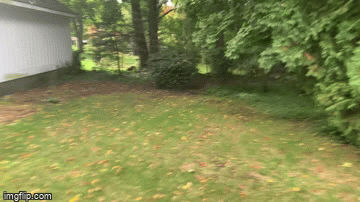The rise of COVID-19 brings increased anxiety along with it
Photo Credit: Connor Cunningham
Student-council president Connor Cunningham spent much of his summer participating in outdoor activities. Here he can be seen kayaking off the coast of Martha’s Vineyard.
November 24, 2020
While COVID-19 has taken its toll on the physical well-being of millions of people, the world is forgetting about its impact on mental health. While we are slowly adapting back to our pre-virus lives, the dreaded quarantine period among other stressors have correlated with increased feelings of anxiety.
COVID-19 has affected the mental health of millions of people across the world. Health concerns, unknown long-term effects, financial situations, and more factors have been on the minds of so many people.
Recent studies show that one in five COVID-19 patients develop mental illness within 90 days of getting the virus. Anxiety, depression, and insomnia were the most common ones found, and there isn’t nearly enough access to mental health relief as there should be.
In the United States, the annual spending on mental health per person is a mere $0.25. If the government can increase spending on this matter, it can cause remarkable differences in mental health for many Americans. Now more than ever would be the time to invest in mental health, as the pandemic, protests, and drama from the 2020 presidential election have caused anxiety to be extremely apparent.
Another huge factor in the spike in mental health across the world is extreme boredom. Quarantining opened a window for a lot of free time for most people, as they were able to spend a lot more time at home relaxing with family. However, there are many people, including high school students, who deal with anxiety by keeping busy. As the lockdown period grew longer, there became nothing to do but panic.
In response to this, the GRHS Mindfulness Committee has been created by senior student-council president Connor Cunningham. The group meets once a month over Zoom to give students opportunities to practice mindfulness through different projects. This month, the group hired professional speaker Dr. Matt Bellace to give a presentation on mental health.
Cunningham, who has a passion for psychology, was inspired to found the group after getting back results that showed staggering amounts of anxiety-related issues in our school.
“Last year, as Junior class president, I created a survey for the class to find out what student’s most pressing concerns were about attending GRHS,” said Cunningham. “The results showed that almost ⅔ of students suffered from stress and anxiety. This prompted me to do some research about effective ways to reduce stress in high school students, and that was when I discovered mindfulness.”
Cunningham was aware that it would be difficult to create this committee in the midst of the pandemic, but felt that he needed to make this happen, “If anything, COVID made me want to do this more than ever, because I know that there is more of a need for stress management techniques during this time than there was before.”
During the committee’s first webinar in which students could attend, Bellace embraced how important it is to find positive outlets from energy during stressful situations. He used the term “natural highs” in reference to different activities that people enjoy doing to relieve anxiety.
Cunningham explained that the uncertainty of the pandemic brought him the most stress in his life. He learned to cope with this by participating in some of his favorite natural highs, which include surfing down the shore, exercising, and hiking.





Kathleen Larsen • Dec 14, 2020 at 11:39 am
I am very impressed with the vitality as well as skilled journalistic writing of the glen echo.
Congratulations to all.
It was fun to have the mini profiles of the writers.
Great variety in subject matter.